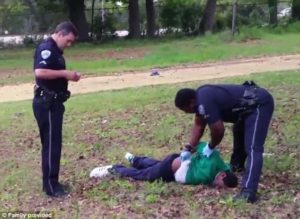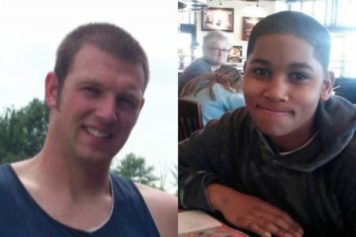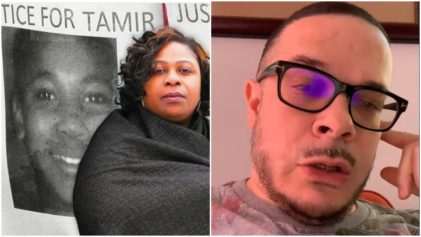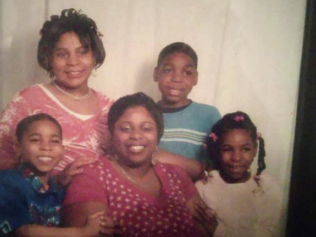Why has America resorted to solving all of our social problems by calling on law enforcement? Late child support payments, a broken tail light, mental instability—in recent weeks, as these societal issues all have been engaged by police officers, in each case an unarmed civilian wound up dead when the officer pulled out a gun and started shooting.
In a compelling essay on The Atlantic website, writer Ta-Nehisi Coates confronts the peculiar American habit of looking to an armed police force to solve a wide array of societal problems the country doesn’t want to confront.
“At some point, Americans decided that the best answer to every social ill lay in the power of the criminal-justice system,” Coates writes. “Vexing social problems—homelessness, drug use, the inability to support one’s children, mental illness—are presently solved by sending in men and women who specialize in inspiring fear and ensuring compliance. Fear and compliance have their place, but it can’t be every place.”
Coates goes through the recent deaths of Walter Scott in North Charleston, Tony Robinson in Wisconsin and Anthony Hill in Atlanta and notes that each one encountered police because of an issue that we really shouldn’t be expecting police to solve. Scott was pulled over because of a broken tail light and ran away from police officer Michael Slager because he didn’t want to be incarcerated once again for child support arrears. So he got shot. (It also should be noted that South Carolina law requires just one working brake light, so Slager either didn’t know the law he was paid to uphold or he wasn’t telling the truth about why he pulled Scott over.)
Teenager Tony Robinson was high on mushrooms and acting erratic when he encountered a Madison police officer. So he got shot.
Anthony Hill was naked and mentally ill. After he jumped off his balcony and the police showed up, he got shot.
Coates includes the death of Tamir Rice in this list. Tamir was bored, outside playing in the snow with his cousin’s toy gun. Minutes later, he was shot.
“I can’t see the image of Tamir Rice aimlessly kicking snow outside the Cleveland projects and think of how little we invest in occupying the minds of children,” Coates writes. “A bored Tamir Rice decided to occupy his time with an airsoft gun. He was killed.”
Coates steps into the question of race, understanding that the fundamental problem of the police in Black communities is that they lack legitimacy. In describing the relationship between Black people and the police, Coates references a 1953 book by Robert Nisbet, The Quest For Community, that distinguishes between “power” and “authority.” Nisbet said that authority is a matter of relationships, allegiances, and association and is “based ultimately upon the consent of those under it.” But power is “based upon force.”
“Power arises,” writes Nesbit, “only when authority breaks down.”
“African Americans, for most of our history, have lived under the power of the criminal-justice system, not its authority,” Coates writes. “The dominant feature in the relationship between African Americans and their country is plunder, and plunder has made police authority an impossibility, and police power a necessity.”
In other words, Black people will never respect the police because there has never been a cause for allegiance, never been an actual relationship. Because there is no respect, there will never be authority.
While Black people know that police sometimes lie and exploit and abuse, white people believe inherently in the legitimacy and authority of the police. That’s why the two communities so rarely see the same incident through the same eyes.
“Police officers fight crime. Police officers are neither case-workers, nor teachers, nor mental-health professionals, nor drug counselors,” Coates writes. “One of the great hallmarks of the past 40 years of American domestic policy is a broad disinterest in that difference. The problem of restoring police authority is not really a problem of police authority, but a problem of democratic authority. It is what happens when you decide to solve all your problems with a hammer… A reform that begins with the officer on the beat is not reform at all. It’s avoidance.”



